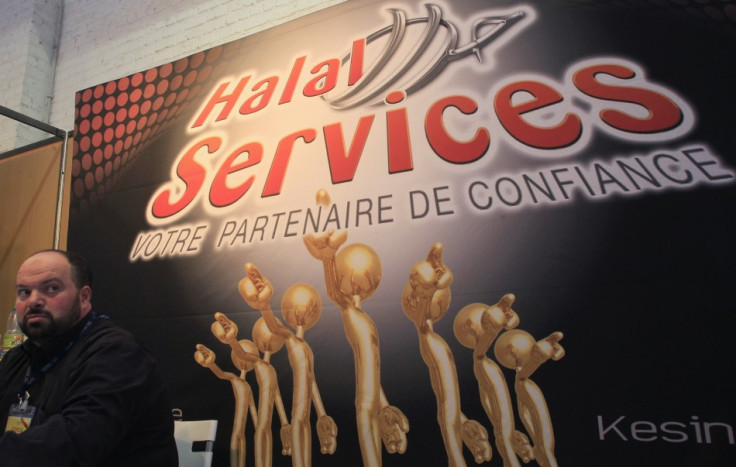Halal Food Festival Showcases Fresh Face of British Cuisine

Some people are so committed to halal food that they will fly all the way from Australia to promote it.
That is what chef Amina Elshafei, a contestant from the fourth series of Australia's Masterchef, has done.
Her journey to London to take part in the first ever Halal Food Festival, which is on until Sunday (29 September), is the best evidence of how global halal food has become.
Elshafei radiates passion about the subject in a massive hall in the ExCel Arena.
"When we talk about halal in a commercial or economic sense, it is a huge industry and a dynamic industry," she says. "It is a reflection of the immense Muslim population globally."
In London alone, 15% of the meat on sale is halal and there is a growing Muslim population of one million which is becoming wealthier as time goes by. Elshafei is convinced that the appeal of halal food will expand.
"The concept of halal food will continue to grow. One of the venders here, we were having a chat and he used to cook in France. And he was saying that there this is one Algerian chef in France who now has halal foie gras so it is definitely going to keep growing."
Good for Londoners?
Numerous stalls are spread out in the exhibition hall with a live cooking class and world class chefs showing off their best cuisine.
One of them is Abdul Yaseen, the head chef at Cinnamon Kitchen, a top Indian restaurant near Liverpool Street.
He sees the Halal Food Festival as part of broader trend in a healthier eating culture that has established itself over the last few years.
"If you look back a couple of years, organic food took a boom and people started to eat more organic and freshly produced food and there was a lot of education involved in it. The Halal Food Festival obviously can make people aware as to why halal is so hygienic."
Yaseen thinks that Londoners will welcome halal food with healthy appetites and open minds.
"London is a city that adopts and welcomes every single cuisine to come and showcase its best meals."
Halal and British Eating Culture
Probably no one knows as much about halal food or its increasing importance to the British economy as Cyrus Todiwala, a legend in the restaurant industry who has appeared on BBC 1's Saturday Kitchen Programme.
He believes that the potential for halal food consumption is huge.
"There are nearly 10,000 Indian restaurants in this country. And there are several thousand others - Thai, Chinese, Moroccan, Malaysian, Vietnamese," he says. "You name it, it is all there.
"The Asian restaurant sector is worth £4.8bn today. That £4.8bn is not coming exclusively from halal-eating people, that is coming from the entire diaspora that makes our Britain today."
Todiwala came to Britain 20 years ago when the Asian restaurant sector accounted for half the size it is today.
It grew alongside the growing affluence of the UK's Muslim middle class, a diverse population and a superior quality of halal products pushed up by fiercer competition, which has a knock-on effect for the wider UK economy in the non-restaurant sectors such as supermarkets and farmers.
Noman Khawaja, events director of the festival, reinforces the idea of the benefits of halal food to British business.
"Restaurants are becoming more aware of halal," he claims. "You know all this organic trending. Halal is a big part of the organic process and the feed of the animal to the life it has and the way it is slaughtered."
Halal and the Future
Boris Johnson has officially endorsed the Halal Food Festival in a letter that references the festival in relation to the first World Islamic Forum in Europe in October.
Rosie Boycott, who is Johnson's food adviser and chairman of the London Food Board, says the food industry in London employs 300,000 people and is worth £70bn to the local economy.
"Assuming we have [all] three meals a day, that is 25 million meals eaten every day in this city and that is a staggering amount," she says.
"The richness and diversity that halal will bring is something that we will really welcome."
© Copyright IBTimes 2025. All rights reserved.






















